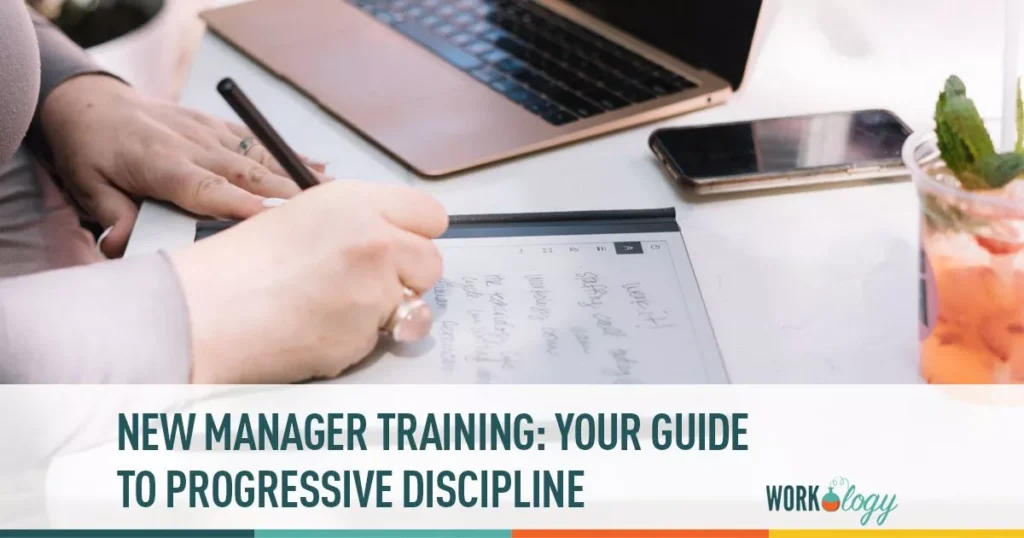What is progressive discipline? According to Indeed.com, progressive discipline is a workplace disciplinary concept that uses a graduated system to inform employees of their behaviors and performance issues. It serves to provide employees with an opportunity to fix and improve difficulties linked to their job performance.
It is the role of HR leaders to train new managers on progressive discipline and why they should use it. Here is why progressive discipline is essential:
• It helps new managers conquer discrimination and retaliation claims.
• It gives new managers objectivity and fairness in the disciplinary process.
• It encourages supervisor-employee openness in communication.
• Conceivably boosts employee retention by settling problems.
• Presents extensive documentation should termination become inevitable.
Steps in the Progressive Discipline Process
As a new manager, it is paramount to understand how progressive discipline is practiced to correct bad behavior by employees. The process includes the following steps:
1. Verbal warning: A verbal warning is the first step in the progressive disciplinary process. As a manager or employee’s immediate supervisor, it is your duty to notify the employee through a verbal notice about the need for improvement. Documenting this conversation is crucial for future reference.
2. Written warning: A written warning is issued after the employee’s immediate supervisor ascertains that the employee’s performance after a verbal warning did not improve. The supervisor should document the undesirable behavior or performance, including prior informal attempts to correct the prevailing problem. At this stage, employees must sign the written warning and have copies submitted to HR or/and the union if applicable.
3. Final warning: Managers or supervisors are mandated to issue a final warning if the two previous progressive disciplines didn’t bring the expected outcomes. Before giving the written final warning, the supervisor should again discuss the situation with the employee and indicate that the next step is termination unless there is a course correction. As in the previous step, the employee should sign the final warning document and submit it to HR and, if applicable, to the union.
4. Termination: Unfortunately, new managers and HR leaders often are left with the last step in the progressive discipline, which is termination despite so many corrective efforts. Having worked in HR for many years, this is my least favorite step. Before proceeding with this step, new managers and HR leaders should articulate expectations to the employee as contained in written documents such as employee handbooks, job descriptions, etc. It is much easier for new managers to discuss performance issues when expectations are communicated and supported by a written form.
Why Document Progressive Discipline?
Good documentation is an absolute must when employee performance is in question. By recording disciplinary steps, new managers can make sure employees know what the potential consequences are if behavior or performance concerns are not fixed. It also provides employers with written proof that they handled the situation legally and consistently with the organization’s written policy.
Since documentation entails both positive and negative information about an employee, it should paint a fair picture of the employee’s performance during a progressive discipline without focusing solely on the negative events.
The following guidelines are fundamental for new manager training when it comes to administering progressive discipline.
• Thoroughly investigate the issue at hand.
• Document in writing each step of progressive discipline.
• Include any performance improvement plan (PIPs) taken.
• Promptly implement progressive discipline should a problem occur.
Giving feedback and having regular one on one meetings with employees should be a big part of what new managers do whether or not employees are performing at or above expectations. Documenting this is necessary as it comes in handy if progressive discipline arises. It shows HR leaders and legal counsel that you have spent time communicating company expectations and giving feedback as a manager. In short, an employee should never be surprised by termination that follows progressive discipline, as they are involved in each step of the process up to the PIP and termination meeting.









